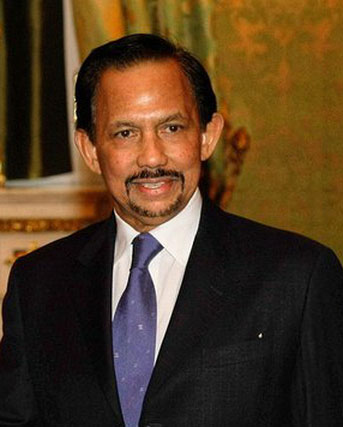“A whole panoply of serious human rights abuses straight out of a long-forgotten feudal past will be on offer, including stoning adulterers to death and amputating limbs of suspected thieves,” said Brad Adams, director of the Asia division at Human Rights Watch.
“It’s a brutal and unnecessary move that will cast Brunei in a very negative light.”
Brunei’s leader, Sultan Hassanal Bolkiah, hit back at international criticism of the move saying it was a “great achievement for the country, and not a backward or old-fashioned step”

Photo: CreativeCommons
Wielding absolute power, it seems there is nothing to stand in the way of the sultan’s legislation being enacted.
“That could upset the balance with ethnic Chinese and Indian minorities in the region.”
“One main factor that allows the sultan to enact this law is that Brunei has been under a state of emergency since 1962,” says Emerlynne A. Gil, international legal advisor for Southeast Asia at the International Commission of Jurists.
“Since then, the sultan acts as the sole executive and legislative power. He can adopt, abolish and amend laws at will, without consultation or any approval by any kind of parliament.”
While it is unclear whether Muslim-majority nations in Southeast Asia will follow suit, Adams painted a bleak picture for Brunei and the region. “It’s likely this move will result in greater isolation for Brunei, as negative repercussions emanate out into the international community,” he said.
Brunei’s neighbours, Indonesia and Malaysia, currently implement sharia law to a lesser extent. In those countries, it is mostly used to regulate personal matters such as custody rights and marriage.
However, Malaysia’s Terengannu province and Indonesia’s Aceh province have implemented sharia in full.
“I expect it will spark serious concerns in neighbouring Muslim-majority countries such as Malaysia and Indonesia that Brunei is embracing a more severe formulation of Islam,” Adams added.
“That could upset the balance with ethnic Chinese and Indian minorities in the region.”


